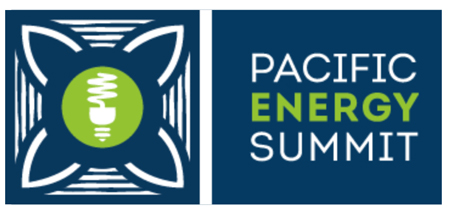It may have received scant attention in the Australian mainstream, whose attention may have been distracted by aborted leadership coups, football kickoffs et al, but a very important energy summit (including the latest in Pacific solar energy projects) took place in Auckland, New Zealand last week.
Eighteen Pacific nations attended the summit which was hosted by the New Zealand Government with co-sponsors the World Bank, The Asian Development Bank and AusAID. The Pacific Energy Summit explored a range of options for Pacific nations to achieve their energy targets and, perhaps most importantly, how to raise funding for such programs.
This of course included solar power, already making headway in nations such as Tokelau which in throwing the switch to solar in November 2012 has become the world’s first solar-powered country. For more on this achievement see our article Tokelau throws switch to 100 percent solar in Australia’s backyard.
The example of Tokelau was alluded to in a speech to the convention by Simon Bridges, NZ Minister for Energy and Resources.
“We’ve already seen the benefits through the partnership between the New Zealand Government, the people of Tokelau, and an innovative Kiwi company called PowerSmart, said the minister. “…The solar project they’ve created together with Tokelau is the biggest off-grid solar power system in the world. Tokelau now gets over 95% of its electricity from emissions-free solar power.”
The full speech shows the work the Kiwis are doing to partner Pacific nations in their goal of reducing reliance on fossil fuel energy in favour of alternatives such as solar power. Minister Bridges (and the Kiwi government) have reason to pat themselves on the back as they have been at the forefront of providing funding for such Pacific-related renewable energy projects.
As the summit has shown, the solar initiative for the Pacific is not limited to Tokelau with Henry Puna, the prime minister of the Cook Islands, announcing his country’s intention to switch to 100 percent renewable energy by 2020. He has added that many other Pacific nations, many of which are threatened by rising sea levels as a result of climate change, have similar goals.
Australia is represented at the Pacific Energy Summit by AusAID, its official government agency responsible for managing the country’s overseas aid program. While it appears that Pacific nations have no shortage of renewable energy projects waiting to be started, it seems that funding is always a problem.
Many Pacific governments claim the bulk of climate change mitigation funding is directed towards larger, more affluent, countries and the money fails to reach where it is needed most — nations threatened by rising sea levels. Hence the need for the Pacific Energy Summit.
Perhaps this is where AusAID can help?


 RSS - Posts
RSS - Posts



Speak Your Mind